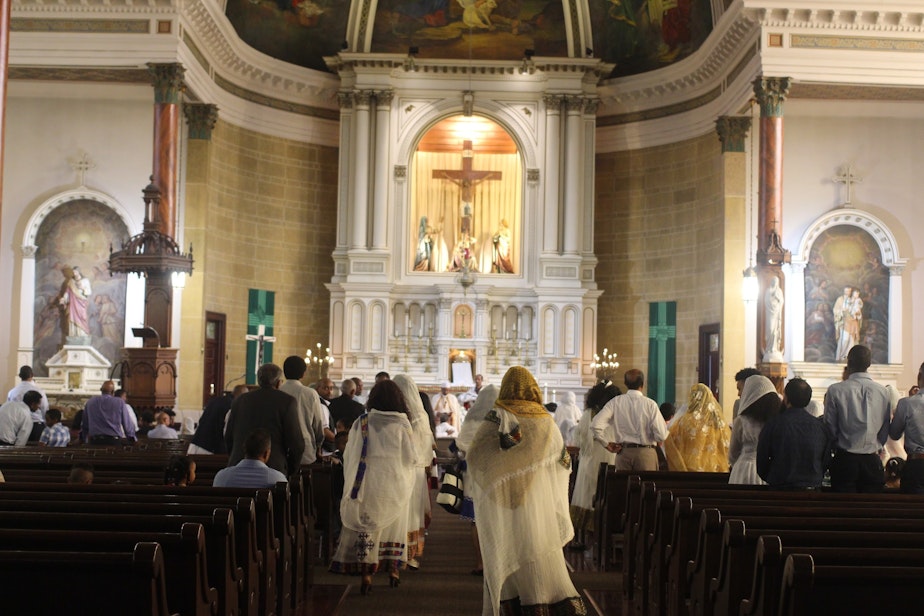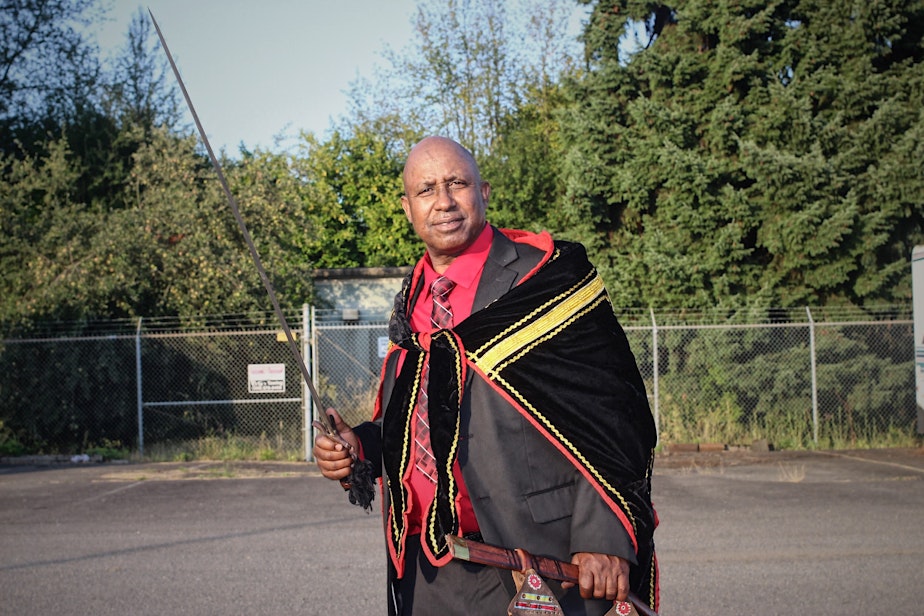How faith defines a family — and in my case, divides it

When my dad immigrated to Seattle from Eritrea, the Eritrean Catholic church became his new community. He goes to mass every Sunday. There, he sings in Tigrinya, his native tongue, and prays to God.
As a first generation Eritrean American, I feel the duty to keep our traditions, language and culture alive. But the church has never completely felt like my own. And my brother no longer attends church.
How can I protect my community while staying true to myself? And how can my brother and father bridge this gap between them?
For my father, Paulos Kelete, church and community go hand-in-hand.
In Eritrea, his family raised him to love God. Church made him feel safe.
“Way back in my country,” my dad told me, “every Saturday, most people came to church. They participate, they donate, they pray together. They love each other.”
Even though Catholicism is very important to my dad, it’s the community that matters most to him. Because church is so heavily rooted in our family, my dad has never had a reason to question his faith.
“You cannot see tomorrow, but tomorrow is coming,” my dad said. “You cannot see God by your eyes, but you live by God’s power.”
Sponsored

He wishes that the new generation of Eritrean Americans could value church as much as he does. But my brother sees it differently.
My brother, Samsom Paulos, always felt disconnected from the Eritrean Catholic Church.
Every Sunday, as a little boy, he would sit in the front, next to the altar, dozing off whenever the priest spoke, muttering a quick amen every now and then.
For hours he would hear a foreign language, but not actually listen. He realized he wasn't getting anything out of the experience.
Sponsored
"I've only been coming here for the sake of looking like a morally righteous person to people whose opinions I don't really care about," Samsom told me.
I understand what my brother is saying. But I also feel conflicted.
For many of us Eritrean American kids, church was a place where we made lifelong friends. A place we could call home.
Separating ourselves from church means risking not only judgment, but also our community.
I wanted to talk to my brother and dad about ways to make the Eritrean church meaningful for both generations. I wanted to find some common ground between their beliefs. It didn’t work out. They wouldn’t even look at each other. I asked them to move their chairs to face each other. After some grumbling, they followed my instructions.
Sponsored
I then asked them if they have any regrets.
“Regrets are like a rocking chair,” my brother Samsom said. “They give you something to do, but you’re not going nowhere with it. You can focus on the future, but the past is already written.”
I asked my dad if he has any regrets about the relationship between the church and the new generation of Eritrean Americans. At first he said no, but then he said, “I have, but what do I do?”
Exactly. What do we do now?
My brother decided to take his own path. My dad is trying to keep the tradition alive.
Sponsored
I don’t know where I stand.
I know that church comes with rich culture that makes us Eritrean. It feels as if I’m letting down my community if I don’t go to church and continue the tradition.
I feel like I need to find a solution soon — before our church, our language and our culture disappear.
But right now, I’m just sitting between my father and brother, searching for some common ground.
The Eritrean Kid's Prayer By Essey Paulos
This story was created in KUOW's RadioActive Intro to Journalism Workshop for 15- to 18-year-olds, with production support from Kamna Shastri. Edited by Mary Heisey.
Find RadioActive on Facebook, Twitter and Instagram, and on the RadioActive podcast.
Support for KUOW's RadioActive comes from the Bill & Melinda Gates Foundation Discovery Center.
